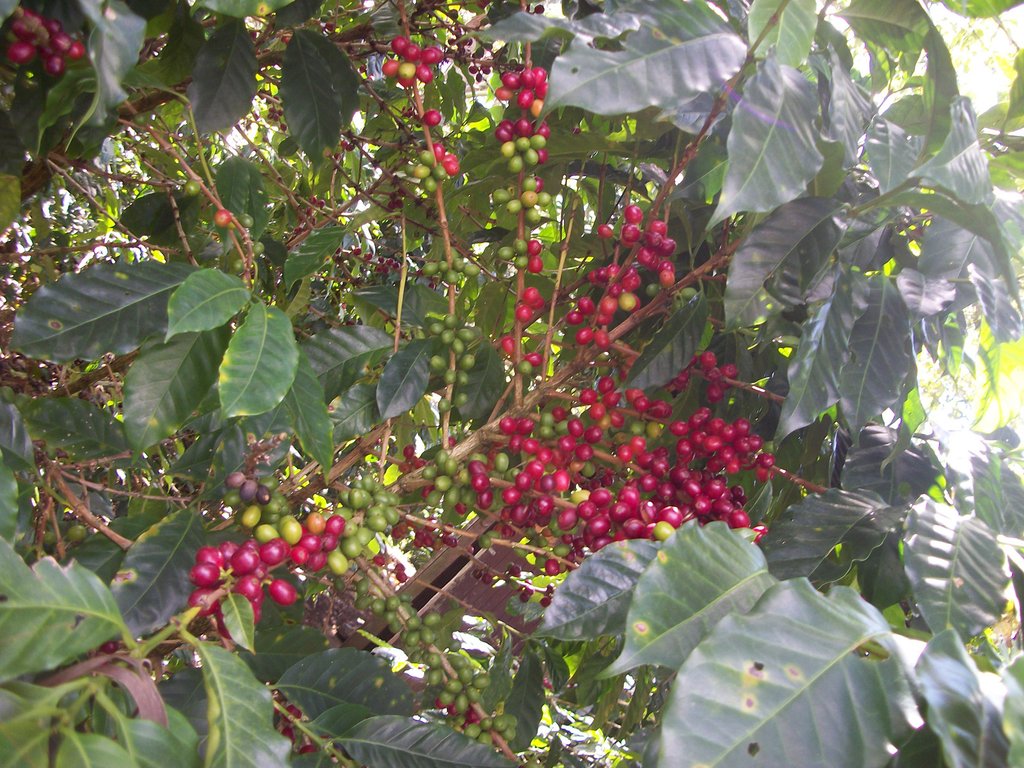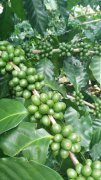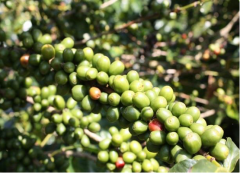Can I have an espresso machine with Nicaraguan coffee beans? Characteristics of javanica coffee beans in Nicaragua

For professional baristas, please follow the coffee workshop (Wechat official account cafe_style)
Mierisch family
The Nicaraguan Mieri family has a history of more than 100 years since it began to grow coffee in 1908. In the past 15 years, the family's investment in coffee equipment, processing technology and personnel training has led to the great growth of the family's micro-batch coffee beans. At the same time, these changes also come from the efforts of the whole family and the tireless input of each member. Under the leadership of the Mieridi family, the manor of the family has also won many COE awards.
At present, the manor is owned by the old manor owner Dr. Erwin Mierisch was not only a gynecologist in the United States, but also a senior judge of COE, and often went to various places to guide farming and treatment techniques.
At present, the new generation of Erwin Mierisch, Eleane Mierisch and Steve Mierisch of the family deal with the affairs of the manor.
The Mieridi family has nine estates, eight of which are located
Nicaragua San Jose, Limoncillo, Escondida, Milagros, Placeres, Los Altos, Mama Mina, Suspiro, the last estate is located in Cerro Azul, Honduras.
The one you may have heard of is Limoncillo, Lemon Tree Manor, which won the second place in COE in 2008, and we have previously sold Nicajava or Javanica produced by this estate.
The first thing you may wonder is what is Javanica?
Java Javanica is a Java breed successfully restored in Nicaragua by Erwin, the current chief executive of the Mierishun family, and his father, Esteban Mierisch.
On their way to Juanetillo in Nicaragua, they passed a coffee organization: the UNICAFE's Coffee Laboratory.
Yes, you read it correctly, that's the name, but the origin of his UNICAFE is Uni ó n NIcarag ü ense de CAFicultores), which has nothing to do with us.
They saw a man standing by the road, throwing away some old shovels and coffee seeds, so Esteban bought about 20 pounds of the seeds he was about to throw away.
And take it back to ask their agronomist, this agronomist said that this is a rare variety, but because it is not resistant to disease, planting is not easy, the income is not good, and it is not popular.
But this is an excellent variety and it is worth planting. So in 2008, the Mieri family successfully harvested about eight bags of Javanica.
Javanica beans are slender, early Ethiopian LONGBERRY, and related to Tibika, is a very special and African variety.
The breed later spread to other places, such as Bolivia, but since Nicaragua was the first country to be restored, the name Javanica was retained.
Mm-hmm. Wait, where's the footprint manor? it's not even in here?
In fact, the footprint Manor is located in El Placeres in northern Nicaragua, the producing area is Yasica Sur, which is currently managed by Julio Perez Cruz. It is about 1150-1400 meters above sea level, which is a very suitable environment for Javanica growth.
Java Java Nica is a "Java variety" coffee bean successfully recultivated by "Miresh family" in "Nicaragua".
Derived from Java-long Berry
From the Indonesian island of Java, which can still be found in Java.
But the disease resistance is poor, so the yield is not much.
At the same time, this successful "new" variety
Revive the vanilla flavor that was once lost in Java.
Therefore, JavaNica has become the new darling of the international coffee industry.
This batch is certified by the Rainforest Alliance, and the purpose of the certification is
"protect pristine forests, preserve wildlife habitats, rebuild renewable forests and protect natural resources."
Rainforest Alliance certification is widely used in a variety of agricultural products, and it can be regarded as an alternative "organic certification".
Flavor description:
Dry fragrance is a charming vanilla aroma peculiar to Central American Java with floral aromas and lemon peel.
And the sweetness of fresh blueberries and peaches
The entrance can still feel the fragrance of vanilla and lemon peel lingering in the nose
With sour and sweet juicy orange juice, it tastes smooth and round.
Important Notice :
前街咖啡 FrontStreet Coffee has moved to new addredd:
FrontStreet Coffee Address: 315,Donghua East Road,GuangZhou
Tel:020 38364473
- Prev

Introduction to the flavor and taste of adzuki bean from PB Monteiro (waterway) treatment plant in Mtaro estate, Kenya
For the exchange of professional baristas, please follow the coffee workshop (Wechat official account cafe_style) Kenya Mtaro estate Monteiro (waterway) processing plant PB round beans Kenya is a model country for fine coffee beans, most of the coffee beans are uniformly graded by the Kenya Coffee Bureau and then sold at the auction venue, the system of public auction can be traced back to 1934, Kenya about
- Next

Introduction and description of the flavor and taste of Sidama coffee beans in Gedeo, Ethiopia
For the exchange of professional baristas, please pay attention to the coffee workshop (Wechat official account cafe_style) Ethiopia Sidamo-Gideo (Gedeo) sun beans Ethiopia is the country where coffee was first discovered and is the most important producer in terms of coffee quality and output. Coffee is mostly traditional Arabica species, with an annual output of about 350000 tons, more than 80% of which are exported to countries around the world.
Related
- Detailed explanation of Jadeite planting Land in Panamanian Jadeite Manor introduction to the grading system of Jadeite competitive bidding, Red bid, Green bid and Rose Summer
- Story of Coffee planting in Brenka region of Costa Rica Stonehenge Manor anaerobic heavy honey treatment of flavor mouth
- What's on the barrel of Blue Mountain Coffee beans?
- Can American coffee also pull flowers? How to use hot American style to pull out a good-looking pattern?
- Can you make a cold extract with coffee beans? What is the right proportion for cold-extracted coffee formula?
- Indonesian PWN Gold Mandrine Coffee Origin Features Flavor How to Chong? Mandolin coffee is American.
- A brief introduction to the flavor characteristics of Brazilian yellow bourbon coffee beans
- What is the effect of different water quality on the flavor of cold-extracted coffee? What kind of water is best for brewing coffee?
- Why do you think of Rose Summer whenever you mention Panamanian coffee?
- Introduction to the characteristics of authentic blue mountain coffee bean producing areas? What is the CIB Coffee Authority in Jamaica?

